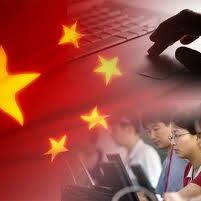Deciphering China's Role as Global Tech Innovation Hub


Thanks to their consumers' acceptance that new products need not be perfect, China's tech ecosystem has been able to thrive on a faster speed of innovation. In this week's industry byliner, Hagai Tal, CEO of mobile ad tech vendor Taptica, explains why China is fast becoming a more viable comparison to Silicon Valley; but cautions that foreign companies will face challenges finding success in the Chinese market.
Every mobile advertising firm in the world looks to China as a huge opportunity. With a population nearing 1.4 billion and mobile penetration at 58% and "skyrocketing", according to Pew Global, especially among the young, China is the market to end all markets.
But, it isn't just an opportunity to sell products. In many ways, it's the innovation hub that's already driving the mobile world. How could that be when Silicon Valley is seen as the epitome of disruption?
The digital revolution that Silicon Valley unleashed has taken root around the globe. That disruption initially was a uniform event, because the common denominator was to knock down an obsolete model. But, as we race to build the future, the unique attributes of different localities have begun to emerge. In China's case, those attributes are significant.
The ability to scale, for one, is an essential business goal and, in tech, scale is just as important during the development phase. The more data collected and analysed, the better solutions and products you build. With more than a billion people, China offers enormous scale. And it's not just about being able to scale for the sake of scale, it's also about increasing the opportunity to find active users in the early development stage.
If you need one million active users to properly beta test your product, the challenge of finding that audience is significantly greater in the US than it is in China. Simply put, the larger the country, the greater its capacity for incubation.
China innovates on imperfect expectations
For all its clout on the world stage, China remains a developing economy. That fact can be a drawback on many counts, but for innovators it can be a boon. Developing countries don't have to contend with entrenched legacy technologies.

Hagai Tal, CEO, Taptica
Take, for example, landline subscriptions in China and the US. According to World Bank data, Chinese landline subscriptions peaked in 2006, with about 26 per 100 people subscribed to a fixed telephone line. In the US, landline subscriptions peaked six years earlier; so it was ahead of the curve on mobile adoption, but the peak subscriber rate was 68 out of 100 Americans. In 2014, Americans still subscribed to landlines at the rate of 40%. In China, this had dropped to 18%.
The data points illustrate a key advantage for China's mobile industry. Unlike mobile industries in advanced economies, the Chinese market was able to leapfrog a legacy system. Its consumers also were primed to leapfrog those legacy technologies and embrace a mobile-centric paradigm, while their American counterparts were slower to walk away from landlines and, in the process, created a more fragmented landscape.
However, leapfrogging legacy technologies is a short-lived boost to innovation, because once you bypass the previous model, the relative gain in speed dissipates.
What drives the speed of innovation in China today is the philosophy that has emerged from the great build of the previous decade. Chinese tech is fast and nimble because their tech culture values a build, launch, and fix product cycle. The experience of building an internet and mobile infrastructure for a billion people has instilled an intuitive belief among Chinese tech firms of a minimum viable product.
That same philosophy is important to Silicon Valley, of course, but it's often a harder cultural sell because consumers, and the media, expect a new product to work perfectly out the gate. US tech is incredibly strong, but this expectation for perfection at launch hurts the industry more than it helps. In contrast, by embracing a build, launch, and fix product cycle, Chinese firms sidestep the fallacy of the 'perfect beta test' and, in the process, normalise a faster speed of innovation.
Market fragmentation an enemy of utility
In the years before the release of the Apple iPhone, mobile technology wasn't just a small industry, it also was more chaotic. The iOS and Google Android platforms stabilised the market and set the stage for the innovation we're enjoying today because developers finally had a model they could follow – innovate on iOS, scale your innovation to Android.
Today, mobile faces a similar challenge in terms of payments – there are just too many solutions to build for.
In China, though, mobile payments aren't nearly as fragmented because WeChat has captured the market. The app, which is expanding to markets outside of China, is already the holy grail of mobile because it facilitates interactions as diverse as paying for a taxi, ordering a pizza, or exchanging contacts. As one blogger recently observed after a trip to China: "Returning to the US was like stepping back in time to a world where mobile doesn't work properly."
Did the Chinese build a better product? Not necessarily. Developing great technology is only part of the larger challenge of going to market and innovating through subsequent iterations.
The barriers that created fragmentation around the mobile wallet weren't quite as high in China as they were elsewhere. Regardless of the reasons behind WeChat's ability to consolidate the market, one can't overlook the value of that breakthrough. Thanks to its scale, WeChat has mountains of consumer data that will give the company a huge lead, in terms of improving product and adding features.
Chinese tech companies look for sustained growth
One consequence of a mature technology industry is the challenge of sustaining growth following the initial boom. Investors see China's public companies as overvalued and that concern affects startups.
Not surprisingly, Chinese companies have begun looking overseas for growth and their investments outside of China are setting all-time records this year. For the moment, those high valuations make it easier for the Chinese to make deals abroad.
But it's important to remember these deals are largely predicated on the need to generate cash. When Chinese investors look for acquisitions abroad, they ask about revenue and they don't want to hear stories about how a product or a company can change the world. In contrast, Silicon Valley venture capitalists love to hear stories about how a new idea will change everything; even if it's unclear how that idea can be monetised.
In time, this may change. For now, at least, the need for growth, combined with the maturation of the Chinese tech industry, represent a fundamental game change. Chinese technology firms are on the cutting edge, but they're also wealthy. Deals like the one Didi Chuxing made with Uber underscore the new reality; but what are the rules of this new world?
China is filled with opportunities, but understanding its society and business culture is a challenge for the West. For example, Chinese officials play an active role in the marketplace; and the nature of this role can be difficult for outsiders to comprehend because it's so complex. As a result, there are some uncertainties, especially around issues like regulation, privacy, and security, that are baked into the cost of doing business with a Chinese company.
While such issues aren't insurmountable, understanding the nuances of business in China requires patience and commitment.
Right now, the biggest business challenge most foreign companies face with China is a cultural one. Chinese business people who understand Western culture are in relatively short supply. And, when you do find a Chinese counterpart who 'gets it', you must consider whether they have the ability to communicate what they know up the chain of command.
Eventually, we'll see the dividend of the current high numbers of Chinese students studying in the US. But the full impact of that cultural exchange won't be realised until this generation of students assumes a leadership role back home in China.
Until then, the crucial variable that will determine the impact of China as the global innovation hub will be the extent to which the contemporary Chinese business community is able to bridge the gap with Western markets.
China is now fully engaged on the global business stage, both as a market and as an economic engine, but the question remains: "What can we learn from each other?"








Follow ExchangeWire